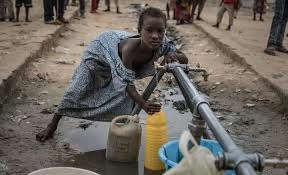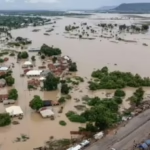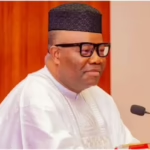Health experts and stakeholders have urged the Nigerian government to take urgent action to address the country’s worsening water quality crisis, warning that millions of lives remain at risk from preventable waterborne diseases.
The call came during a preparatory press conference in Abuja ahead of the second edition of the International Water Quality Conference.
Convener and President of Rite Place Health, Dr. Chukwumezie Okolo, said between 70 and 80 per cent of diseases in Nigeria are waterborne, stressing the need for improved access to safe and quality water.
“We cannot afford complacency. Our national standards must be updated, enforced, and aligned with global best practices,” he said.
Also speaking, Deputy Director at the Federal Capital Territory, Dr. Nkechi Ezeudu, described the situation as both a crisis and an opportunity, revealing that more than 800,000 people — many of them children — die annually from preventable waterborne illnesses.
“Water connects us all. Its protection is urgent and essential,” she noted, urging government agencies to integrate water quality into planning and budgeting while calling on industries to adopt cleaner practices and communities to protect local water sources.
Pharmacist Beatrice Obiageli Mbah of Rite Place Health warned that unsafe water directly impacts hospital admissions.
“Up to 80 per cent of diseases treated in Nigerian hospitals are linked to unsafe water. If we fix water, we will drastically reduce our disease burden and save billions in healthcare costs,” she said.
Similarly, Emmanuel Ochia of Certified Systems highlighted the role of technology in combating water contamination.
“Advanced monitoring systems now make it possible to track water quality in real time. If we invest in this technology, we can detect contamination early and protect millions from exposure,” he explained.
The experts stressed that urgent policy reforms, stronger enforcement, and investment in modern water monitoring systems are critical to reversing the crisis.










Leave a Reply